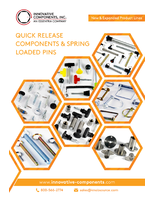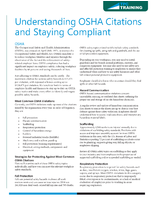IPC Standard provides test methods for pad cratering.
Share:
Press Release Summary:
To help eliminate pad cratering in lead-free assemblies, IPC-9708, Test Methods for Characterization of PCB Pad Cratering, offers 3 standardized test methodologies that let product developers determine best material for their application. Cold ball pull, ball shear, and hard pin pull test methods can be used to rank order and compare different printed board materials and design parameters in order to evaluate susceptibility to cohesive dielectric failure underneath SMT attach pads.
Original Press Release:
New IPC-9708 Standard Fills the Void in Test Methods for Pad Cratering
BANNOCKBURN, Ill., USA - Over the past few years, pad cratering has become a vexing problem in lead-free assemblies, largely attributed to problems with the resin used to make a printed board. To help industry eliminate the defect and, at the same time, cut costs, IPC - Association Connecting Electronics Industries® has released IPC-9708, Test Methods for Characterization of PCB Pad Cratering. The new industry standard provides three standardized test methodologies that enable product developers to determine the best material for their application.
"In the beginning, there wasn't much attention to these types of failures because they were almost unheard of," says Dr. Reza Ghaffarian, a NASA Jet Propulsion Laboratory engineer and the chair of the IPC SMT Attachment Reliability Test Methods Task Group that developed IPC-9708. He explains that as companies started getting products ready to ship they began to realize they had a problem that was not with just one or two parts, but with many. "These are catastrophic failures that are sometimes latent. The defect doesn't always show itself in testing."
IPC-9708 provides test methods to evaluate the susceptibility of printed board assembly materials and designs to cohesive dielectric failure underneath surface mount technology (SMT) attach pads. The test methods, which include cold ball pull, ball shear and hard pin pull, can be used to rank order and compare different printed board materials and design parameters.
"The standard will help people select, say, four materials that seem to meet their needs. Then they can build test coupons defined by IPC-9708 and run tests on these coupons," says Satish Parupalli, an Intel engineer who helped coordinate the development of the IPC-9708 within the IPC 6-10d task group. "That lets them make a decision before they build any real products."
Companies that use IPC-9708 will also see substantial cost reductions by reducing the burden of verification and qualification. "Testing is costly and time consuming. If you don't have standardized test methodologies, you can't quantify which material performs better," said Mudasir Ahmad, a Cisco engineer who led the development of IPC-9708 along with Parupalli.
Some companies are making IPC-9708 a mainstay in their material selection process. Cisco, for example, is setting up its infrastructure. "We're working with multiple suppliers and testing multiple materials. Investing our time and money highlights to suppliers that we believe in this standard and its benefits," Ahmad said.
As is the case with many standards, widespread adoption would bring significant benefits to industry. Proponents hope that resin suppliers and board fabricators will begin reporting data based on standardized testing.
For more information or to order a copy of IPC-9708, Test Methods for Characterization of PCB Pad Cratering, visit ipc.org/9708.
About IPC
IPC (www.IPC.org) is a global trade association based in Bannockburn, Ill., dedicated to the competitive excellence and financial success of its 2,800 member companies which represent all facets of the electronics industry, including design, printed board manufacturing, electronics assembly and test. As a member-driven organization and leading source for industry standards, training, market research and public policy advocacy, IPC supports programs to meet the needs of an estimated $1.85 trillion global electronics industry. IPC maintains additional offices in Taos, N.M.; Arlington, Va.; Garden Grove, Calif.; Stockholm, Sweden; Moscow, Russia; Bangalore, India; and Shanghai, Shenzhen and Beijing, China.




